Trust
Explore Gallup's research.
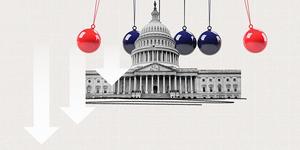
Trust in the federal government has declined in recent decades, mostly vanishing among those who do not support the president's party.
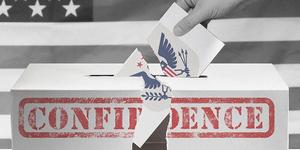
The election trust gap evident in 2016 and 2020 is markedly wider in 2024 as Republicans' faith in the accuracy of the vote has plunged to a new low.

These seven charts summarize how often and why Americans turn to "public individuals" for news and information.
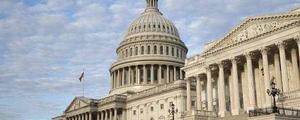
Americans' trust in various aspects of the U.S. government is low, including 39% who trust the federal government to handle international problems.
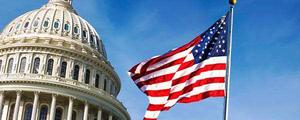
Americans' levels of trust in various aspects of the federal government are near all-time lows. Trust in the judicial branch and trust in state and local governments are relative bright spots.

With Americans' concerns about media bias growing, NewsLens was developed to explore the relationship further with the support of the public.

British leaders trail the U.S. on important leadership and trust metrics. Learn how it affects employee engagement and what leaders can do.

Leaders and managers play a critical role in ensuring their organization creates a consistent culture.

Learn why Germans' trust in corporate leadership has fallen -- and why it's not too late to fix it.

Learn what Gallup research says about leading with compassion through disruption.

Americans' sense of community attachment and trust in others depends on how closely the political views of the community match their own.

Increase the productivity of your team by purposefully engaging your gig workers and building trust between them and full-time employees.

What if trust in science, health and vaccines crashed? A new global survey probes these and other urgent questions.
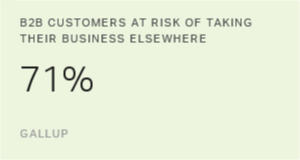
Struggles with indifferent B2B and banking customers were major business challenges Gallup.com covered in 2016.
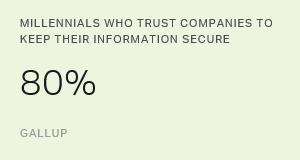
Millennials are the most trusting generation when it comes to the security and privacy of their personal data.
Americans' trust that companies will protect their personal information has declined significantly during the past year.
NBC News Managing Editor and Nightly News anchor Brian Williams has been suspended without pay for six months as a result of his superiors' determination that he "misrepresented events which occurred while he was covering the Iraq War," and also about concerns that occurred while he was "talking about his experiences in the field" outside of NBC News.
Most collaborators, even many of the best, do not realize the role communication plays in creating a powerful partnership. Every time two counterparts talk, their relationship is altered. What goes on beneath the surface is more important than the information exchanged.

